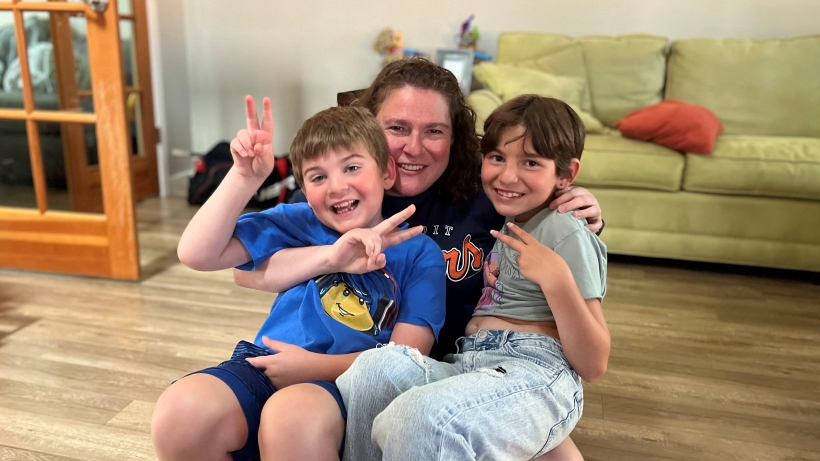A few weeks ago something strange happened in my home. Duncan was out of town attending a conference. It was one of those Shabbat days when my kids would have to spend more time at Neveh, their second home, than at our home. We had Tot Shabbat, Kiddush Club, and a bat mitzvah service in the morning, and then we were heading back for a fun PJ Havdallah that night. And, strangely, Shiri and Matan were as close to angels as they’ve ever been. They played together, laughed together, and overall were helpful and fun to be with. After a full day of togetherness, we got home and they ran upstairs to set up a “sibling sleepover.” If you’ve got a sibling or are a parent of siblings, you know how rare this can be.

Our Torah portion this week, Parshat Vayechi, is the final portion in the first book of the Torah. This book has shared the narrative of multiple sibling relationships, all of which were fraught with rivalry and general discontent. The end of the book, however, contains several blessings in it, including the well-known blessing of Jacob to his grandsons Ephraim and Menashe. This moment is the source of a traditional blessing given to children in Jewish homes, especially on Shabbat:
For boys, the blessing is:
יְשִׂמְךָ אֱלֹקים כְּאֶפְרַיִם וְכִמְנַשֶּׁה
“May God make you like Ephraim and Menashe.”
For girls, a parallel blessing is often used:
יְשִׂמֵךְ אֱלֹקים כְּשָׂרָה, רִבְקָה, רָחֵל וְלֵאָה
“May God make you like Sarah, Rebecca, Rachel, and Leah.”
This tradition comes from Jacob’s statement in Genesis 48:20:
בְּךָ יְבָרֵךְ יִשְׂרָאֵל לֵאמֹר, יְשִׂמְךָ אֱלֹקים כְּאֶפְרַיִם וְכִמְנַשֶּׁה
“By you, Israel will bless, saying: May God make you like Ephraim and Menashe.”
This blessing is significant because Ephraim and Menashe were the first siblings in the Torah to live in harmony, without recorded rivalry, symbolizing unity and peace—values central to Jewish tradition.
– Rabbi Eve Posen
Source: Sibling Sleepover



